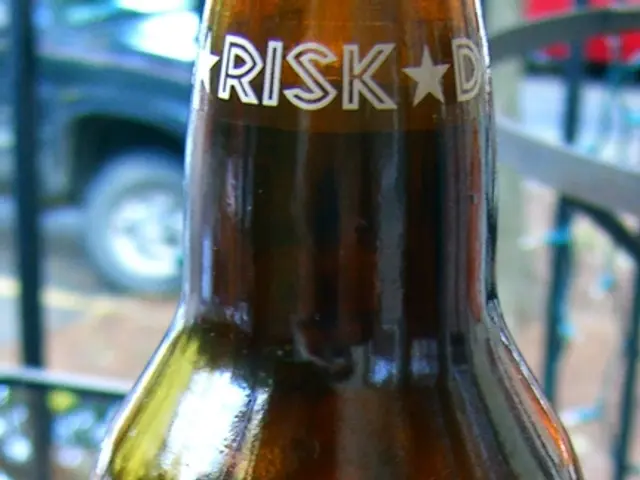Coroner's Offices Accused of Overlooking Deaths Resulting from Gambling and Suicide
Rewritten Article:
The harsh reality of gambling addiction's devastating impacts comes to light as families of suicide victims voice their dismay over the coroner system's negligence in probing the role of gambling in their loved ones' deaths. Across the UK, coroners have faced harsh criticism for their failure to thoroughly investigate the connection between gambling and self-inflicting deaths, leaving families with unanswered questions and potentially hindering efforts to combat gambling-related suicides.
Gambling addiction is a significant issue affecting countless individuals and families worldwide. In the UK, with its robust gambling industry, the detrimental effects of problem gambling can be particularly potent. The refusal of coroners to fully probe the link between gambling and suicide in these cases raises critical questions about accountability in both the gambling sector and the justice system.
One heartbroken family courageously shared their turbulent encounter with the coroner, describing it as "callous." Despite irrefutable evidence of their son's gambling addiction, the coroner stubbornly rejected the notion of it contributing to his ultimate demise. This decision not only denied the family closure but also cancels out essential information that could help shape future prevention tactics.
Another distressing case involved the grieving parents of a young woman. They were adamant that her gambling addiction was the driving force behind her suicide. However, the coroner blatantly dismisses their claims, citing a lack of evidence to warrant an inquest. This callous decision left the family feeling as if their child's struggles had vanished from the official record.
These harrowing tales highlight a distressing trend in the coroner system's handling of gambling-related deaths. Experts in the field demand greater awareness and training for coroners with regards to the link between gambling and suicide as the current lack of comprehension could be a contributing factor.
The gambling industry, under constant scrutiny, holds a vested interest in understanding the full extent of the problem. However, without diligent investigations into gambling-related fatalities, it becomes more challenging to design targeted interventions and support programs.
Growing advocacy groups are now urging the reform of the coroner system, insisting that gambling addiction should be given due consideration during suicide investigations. They caution that acknowledging the connection between gambling and suicide is vital to implementing more encompassing support systems and legislative frameworks.
As debate rages on, families battered by gambling-related suicides continue to battle with their grief and the sense that the system has abandoned them. Their heart-wrenching stories act as a poignant reminder of the emotional toll of gambling addiction and the urgent need for a transparent and effective approach in investigating and preventing gambling-related harm.
The gambling industry and regulatory bodies must address these families' experiences and strive to create a safer gambling environment. Only by genuinely addressing the role gambling plays in these unfortunate deaths can we hope to reduce future losses and ensure those battling gambling addiction gain the support and recognition they deserve.
Enrichment Data:
- Overall: The coroners' failings in investigating the role of gambling in suicides arise from several key issues:
1. Lack of Recording: Problem gambling is rarely recorded in an individual's medical records, hindering the understanding of the true extent of gambling-related suicides and impeding investigations [1][2].
2. Need for Awareness and Training: There are concerns that coroners may lack awareness and resources about the link between gambling and suicide, which could lead to inadequate examination of the connection between gambling and suicide [1].
3. Challenges in Expert Testimony: Instances have occurred where expert witnesses with strong opinions on gambling have faced allegations of bias, complicating the process of studying gambling's role in suicides during inquests [3].
- Impact: These oversights by the coroners may impede efforts to combat gambling-related harm by:
- Underreporting: Inaccurate recording of gambling as a factor in suicides makes it difficult to gauge the true scale of the problem, hindering resource allocation to address it [4].
- Lack of Data: Insufficient data hampers policymakers' ability to develop targeted interventions and strategies to reduce gambling-related harms [4].
- Ineffective Regulation and Public Health Responses: Inadequate data may lead to less effective regulatory measures and public health initiatives to prevent gambling-related harm [1][2].
- The negligence of coroners in investigating the connection between gambling and self-inflicting deaths is concerning, as it affects the families of suicide victims by leaving them with unanswered questions.
- In the health-and-wellness community, experts are calling for greater awareness and training for coroners regarding the link between gambling and suicide, as the current lack of understanding could be a contributing factor.
- In the field of mental health, experts warn that the failure to thoroughly investigate gambling-related suicides cancels out essential information that could help shape future prevention tactics.
- The refusal of coroners to fully probe the link between gambling and suicide might also hinder policy-and-legislation efforts aimed at combating gambling-related harms and implementing more encompassing support systems.
- In the realm of crime-and-justice, the inadequate investigation into gambling's role in suicides can lead to underreporting, hindering the understanding of the true extent of gambling-related suicides and impeding efforts to combat this problem.
- The general-news media coverage of these families' stories highlights the emotional toll of gambling addiction and the urgent need for an effective approach in investigating and preventing gambling-related harm, bringing the issue to the forefront of public discussions about policy and legislation.







